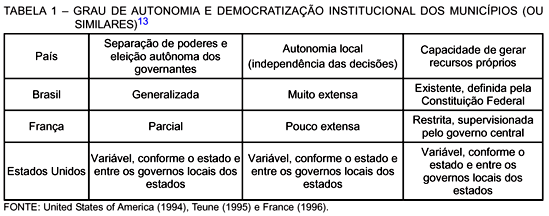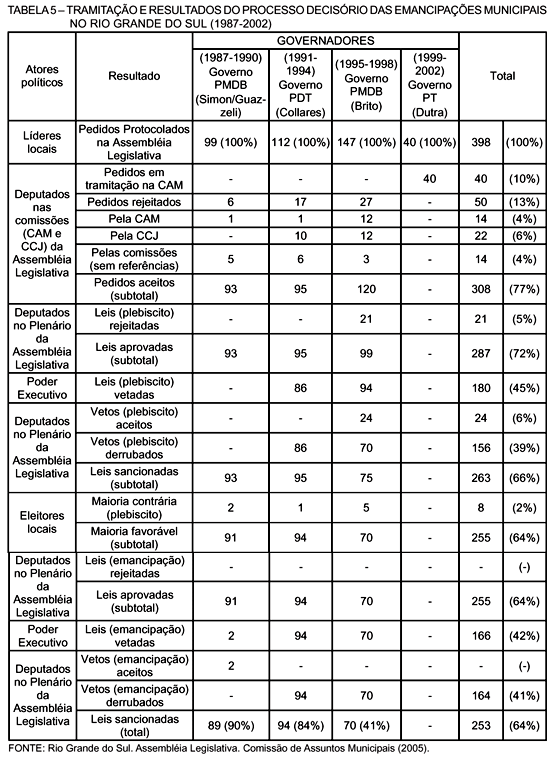This article approaches the process politician who generated the thousands of new municipalities in Brazil, using the state of the Rio Grande do Sul as scene of the relations between state legislative/executive and from the second half of century XX. The recent spalling of the units of local government, as well as the institutionalization of federalism in three levels, is a phenomenon restricted politician to Brazil. Between the states, the Rio Grande do Sul was that one that more intensely broke up its territory. It enters the years of 1988 and 2000 had been created 253 new municipalities in this state. To describe this process I will use an historical-institutional approach. The decisions favorable to the creation of municipalities had predominated in the state power to decide process: 1) because the consolidation of the fiscal decentralization guaranteed the stability of the fiscal transferences to the municipalities; 2) the decentralization of the a regulation of the new municipalities to the states; 3) legislative the state ones had conquered great autonomy in the power to decide process of the creation of municipalities, as in the Rio Grande do Sul, where the popular participation in the legislative proposal, the exclusive prerogative of the voters to initiate the transaction of the process and the popular manifestation in the plebiscite, had limited the capacity of control of the executive on the legislative result.
federalism; State Legislative; new towns






